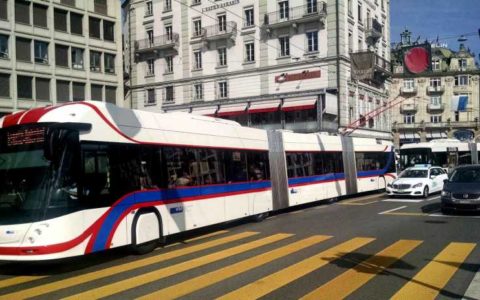Dr. Anastasios Kouvelas is the Director of the Traffic Engineering and Control research group at the Institute for Transport Planning and Systems (IVT), Dept. of Civil, Environmental and Geomatic Engineering, ETH Zurich (since August 2018). Prior to joining IVT, he was a Research Scientist at the Urban Transport Systems Laboratory (LUTS), EPFL (2014-2018), and a Postdoctoral Fellow with Partners for Advanced Transportation Technology (PATH) at the University of California, Berkeley (2012–2014).
SVT mission statement
Until 2018, the leader of the group has been Dr. Monica Menendez, when she moved to the New York University in Abu Dhabi. Since August 2018, her successor as Director of the research group has been Dr. Anastasios Kouvelas. The mission of the Traffic Engineering and Control group is to:
- generate new knowledge about modelling, simulation, optimization, and control of traffic flow in all kinds of vehicular networks.
- transfer this knowledge through teaching, further education, and applied research, particularly through studying large-scale transport systems, and the spatial and temporal dynamics of traffic congestion.
The main areas of expertise are traffic flow theory, systems and control theory, and optimization, all applied to traffic management problems. The research focuses on deriving real-time solutions based on methodologies from automatic control theory and operations research. The group develops algorithmic solutions that are components of intelligent transport systems and run in operational centres.
The recently emerging technologies in the field of autonomous vehicles have broadened our research topics, as the autonomous mobility industry calls for efficient operational solutions. In order to achieve this, the SVT team is multi-disciplinary, consisting of researchers with backgrounds in civil, electrical, and mechanical engineering, computer science, control, and operations research.
The research group is interested in expanding its work on the design of advanced management strategies for urban networks that will use connected vehicles (vehicle-to-infrastructure, infrastructure-to-vehicle, and vehicle-to-vehicle communication) to improve traffic operations. In addition, there will be an effort to develop efficient network-wide control strategies that minimize the environmental impact of traffic operations and lead to equitable and sustainable urban transportation systems.






